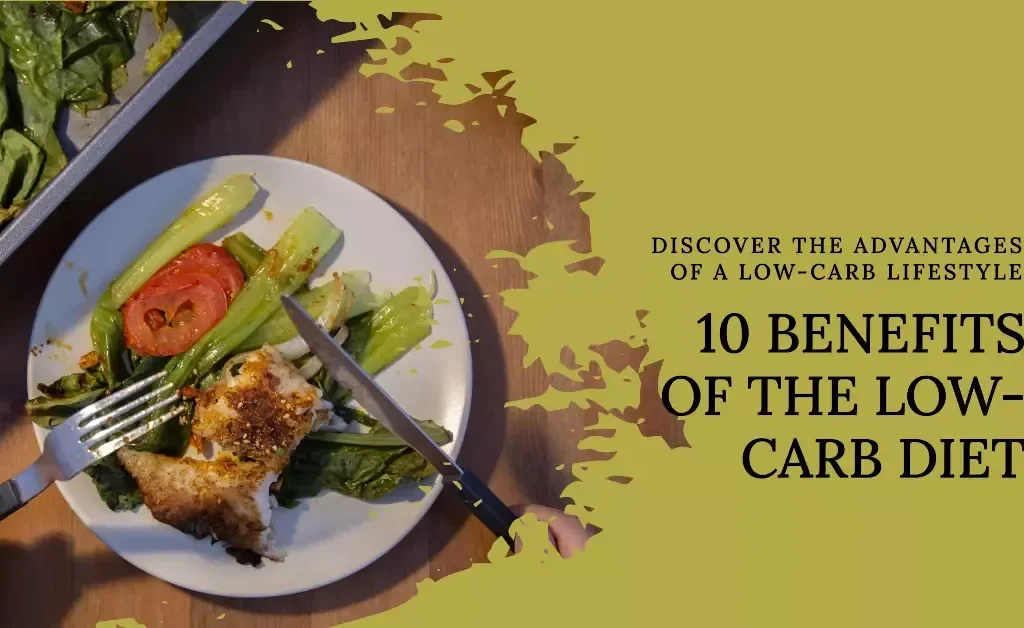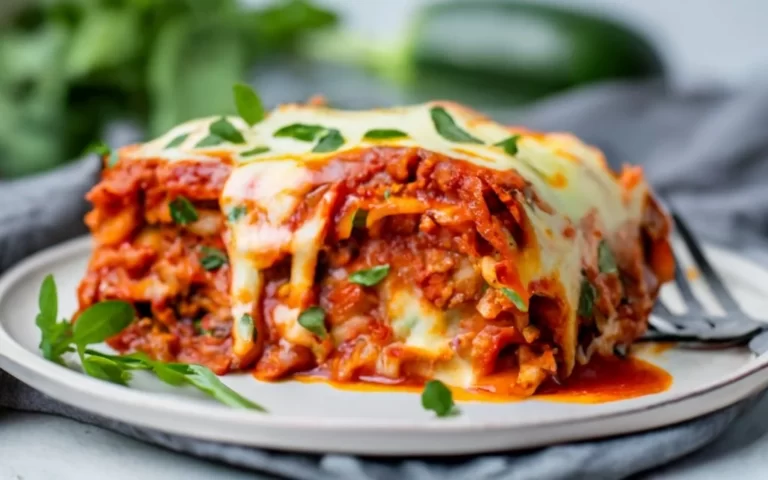With diet trends coming and going, it can be hard to know which eating pattern is right for you. One diet that has stood the test of time is the low-carb diet. For decades, low-carb diets have been popular for their effectiveness at boosting weight loss and improving various aspects of health.
But what exactly is a low-carb diet? In short, it emphasizes protein sources, healthy fats, and non-starchy vegetables while restricting high-carb foods like grains, legumes, fruits, and sugar. Carb intake is typically limited to less than 150 grams per day.
If you’re considering going low-carb, there are many potential benefits to factor in. Low-carb diets have been shown to promote weight loss, reduce heart disease risk factors, lower blood sugar levels, and much more. However, they also come with some potential downsides to keep in mind.
This article will explore the top 10 research-backed benefits of low-carb diets, along with tips for getting started and some drawbacks to be aware of.
What is a Low-Carb Diet?
To understand the benefits of a low-carb diet, it helps to first define what exactly a low-carb diet is.
Definition
A low-carb diet limits the amount of carbohydrates a person eats and replaces those calories with increased amounts of fat and protein. The amount of carbs allowed can vary based on the specific diet plan, but is typically less than 150 grams per day.
Foods to Eat
On a low-carb diet, healthy fats and protein foods take center stage. Here are some low-carb diet staples:
- Meat: Beef, pork, lamb, chicken, turkey, etc.
- Fish: Salmon, tuna, trout, sardines, mackerel, etc.
- Eggs
- Non-starchy vegetables: Leafy greens, broccoli, cauliflower, peppers, zucchini, tomatoes, etc.
- High-fat dairy: Cheese, heavy cream, butter
- Nuts and seeds: Almonds, walnuts, sunflower seeds, macadamia nuts
- Healthy oils: Olive oil, avocado oil, coconut oil
- Berries: In moderation
Foods to Avoid
On the other hand, foods that are high in carbs are very limited on a low-carb diet. These restricted foods include:
- Grains: Bread, pasta, rice, cereal, etc.
- Starchy vegetables: Potatoes, corn, peas, etc.
- Fruit: Bananas, apples, oranges, etc.
- Legumes: Beans, lentils, peas, etc.
- Sugar and sweets: Candy, soda, baked goods, ice cream, etc.
Benefits of Low-Carb Diet for Weight Loss & Health
Transitioning to a low-carb diet can provide a multitude of health benefits. Here are 10 research-backed ways a low-carb diet can improve your health:
Promotes Weight Loss
One of the most studied benefits of low-carb diets is their ability to help people lose weight and body fat. Studies show low-carb diets reduce appetite and lead to automatic calorie restriction, all while preserving muscle mass.
According to one study, people on a low-carb diet lost over twice as much body fat as those on a calorie-restricted, low-fat diet over a 6 week period (3).
Improves Heart Health
Low-carb diets have been shown to significantly improve several markers of heart health:
- Lower triglycerides
- Raise HDL (good) cholesterol
- Lower blood pressure
- Improve arterial function
- Reduce oxidative stress and inflammation
Together, these benefits significantly reduce the risk of heart disease.
Lowers Blood Sugar and Insulin
For people with diabetes or prediabetes, restricting carb intake almost invariably leads to lower blood sugar and insulin levels. Some studies show low-carb diets can normalize blood sugar control and even reverse type 2 diabetes.
May Reduce Cancer Risk
Emerging research suggests reducing carb intake could help prevent certain cancers from developing, including breast, prostate, and colon cancers (8).
Some researchers believe low-carb diets starve cancer cells of the fuel they prefer to multiply and spread (9).
Boosts Brain Health
A low-carb diet may offer protective benefits for the brain, including:
- Slowing the progression of Alzheimer’s disease
- Improving symptoms of concussion
- Enhancing brain energy metabolism
- Protecting against neurodegeneration
Some of these effects may be due to the moderate increase in ketones produced when carbs are restricted.
Improves Acne
Low-carb diets resulting in lowered insulin levels can reduce acne. One study found a strict low-carb diet improved acne in over 95% of participants.
Reduces Inflammation
Inflammation is at the root of many chronic diseases. Studies demonstrate low-carb diets can lower inflammatory markers such as IL-6, TNF-alpha, and CRP compared to high-carb diets..
Helps Manage PCOS
Polycystic ovary syndrome (PCOS) is a hormonal disorder affecting up to 10% of women of reproductive age. Low-carb diets consistently improve PCOS by:
- Lowering insulin levels
- Reducing androgen levels
- Improving ovulation and fertility
- Restoring menstrual regularity
Treats Epilepsy
The ketogenic diet, an extremely low-carb, high-fat diet, can help treat difficult-to-control epilepsy in children. About a third to half of epileptic children have at least a 50% reduction in seizures on a ketogenic diet.
Protects Against Fatty Liver
Non-alcoholic fatty liver disease affects up to 25% of people globally. Low-carb diets are exceptionally effective at reversing this condition.
Potential Drawbacks
Despite their many benefits, low-carb diets do come with some potential downsides to keep in mind.
May Cause Temporary Side Effects
When first starting a low-carb diet, some people report headaches, fatigue, cramps, or diarrhea. These side effects usually subside within 1-2 weeks as the body adapts to burning fat instead of carbs for fuel.
Constipation
A reduction in fiber intake can lead to constipation in some people. Be sure to eat plenty of low-carb vegetables to provide fiber.
Nutrient Deficiencies
If nutrient-dense whole foods are not emphasized, nutrient deficiencies may occur over time. To prevent deficiencies, eat plenty of:
- Lean proteins
- Leafy greens
- Nuts and seeds
- Fatty fish
- Eggs
Disordered Eating Patterns
In susceptible individuals, strict low-carb diets could potentially trigger or worsen disordered eating habits. Work with a professional if you have any concerns.
Tips for Starting a Low-Carb Diet
Here are some tips to help you transition to a low-carb diet smoothly and successfully:
Cut Back on Carbs Slowly
Going very low-carb overnight can cause fatigue, headaches, irritability and cravings. To avoid this, take a gradual approach by slowly reducing your carb intake over a period of several weeks.
Plan Your Meals
Planning low-carb meals and snacks helps ensure you stay on track. Make a weekly meal plan and grocery list to set yourself up for success.
Choose Nutrient-Dense Foods
Emphasize foods that provide maximum nutrition, including:
- Lean proteins: Beef, poultry, fish, eggs
- Non-starchy vegetables
- Nuts and seeds
- High-fat dairy
- Healthy fats: Olive oil, coconut oil, avocados
Stay Hydrated
Drink plenty of water and add electrolytes like sodium, potassium and magnesium to prevent symptoms of the “keto flu.”
Get Enough Fiber
Eat chia seeds, flaxseeds, avocado, nuts and plenty of low-carb vegetables to increase your fiber intake.
Monitor Your Health
Check in periodically with your healthcare provider to ensure your diet is providing all the nutrients you need.
Following these simple tips can help make the transition to a low-carb diet more comfortable and sustainable long-term.
Conclusion
When it comes to your health, the foods you eat make all the difference. Transitioning to a low-carb diet could provide you with impressive benefits like sustainable weight loss, improved heart health markers, better blood sugar control, and reduced inflammation.
However, drastic changes to your eating habits should not be taken lightly. Speak with your healthcare provider first, especially if you have any medical conditions that require special nutrition needs. With professional guidance, a low-carb diet can be implemented safely and effectively. Remember to make the transition gradually, choose nutritious foods, and drink plenty of fluids.
With some patience and planning, a low-carb diet may provide the boost your mind and body needs to perform at their best. The potential benefits for your health make it worthwhile to give this eating pattern a try.
FAQs
Q: How many carbs should you eat on a low-carb diet?
A: 20-50 grams of carbs per day is recommended for most low-carb diets. Up to 100-150 grams per day is still considered low-carb.
Q: What are good low-carb meal ideas?
A: Bacon and eggs, steak with roasted vegetables, zucchini noodle Bolognese, taco bowls with ground turkey and avocado.
Q: Can you build muscle on a low-carb diet?
A: Yes, it’s absolutely possible to build muscle on a low-carb diet if you eat adequate protein (at least 0.5 grams per pound of body weight daily) and lift weights.
Q: Is keto the same as low-carb?
A: Keto is an extremely low-carb diet, usually under 50 grams of carbs per day. Low-carb diets are less restrictive, allowing up to 100-150 grams of carbs.
Q: What are the side effects of a low-carb diet?
A: Headaches, fatigue, cramps, constipation or diarrhea. Plus an increased risk of nutrient deficiencies if nutrient-dense foods are not prioritized.






